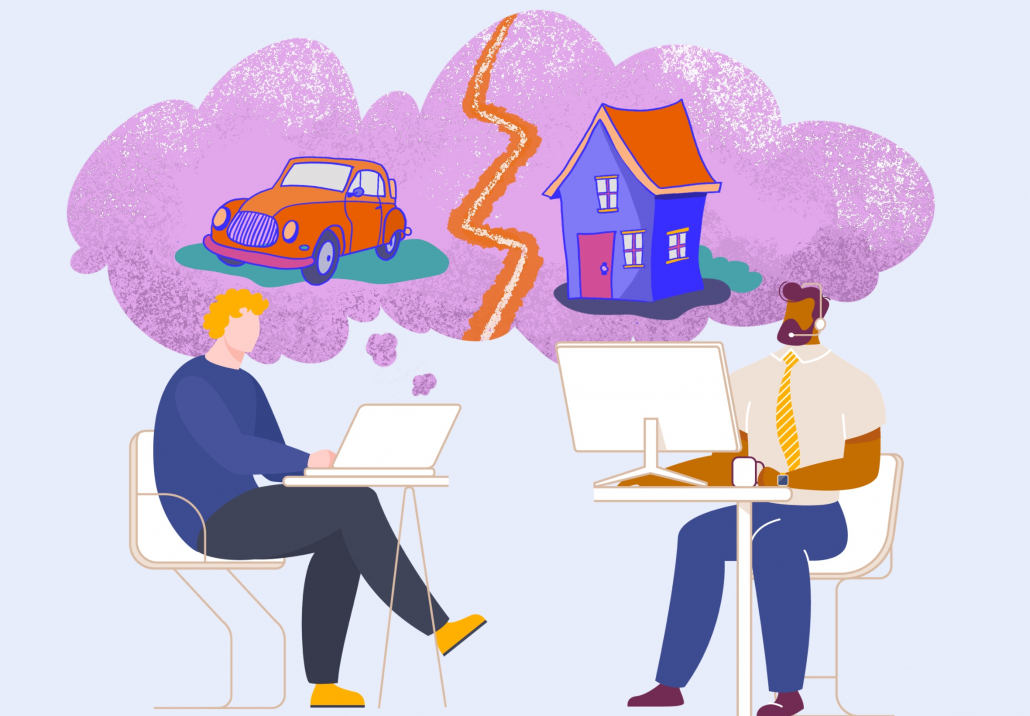To own or not to own?
Arden Rose Ricks, known professionally as Arden Rose, is an actress, author and overall charming 26-year-old Angeleno with impeccable taste in interior design, a skill she’ll be putting to use later this month.
“I just got some of the craziest news that I’ve ever gotten in my life: Your girl is in escrow. On a house — a house — with a roof and with bedrooms and a kitchen.”
Stomachs all over campus just tightened with envy. While most of us have signed leases on overpriced 750-square-foot apartments, this woman has an address all to herself.
“I know this is going to sound really obvious, but I am in such an incredibly privileged position, that this is even possible for me.”
Just how privileged is it exactly? According to Zillow, the average house in Los Angeles costs $882,000. That’s not including surprise expenses, taxes, fees, closing or maintenance costs. To put that into perspective: If a college graduate takes home $60,000 per year, it will take an estimated 14.5 years to save up enough money to make the down payment. And that’s assuming they’re putting away 20% of their earnings each year, something that becomes quite difficult if they have, say, student loans.
The Federal Reserve estimates that student debt shrinks GDP by roughly 0.05% per year. That number may look small, but as Millennials and eventually Zoomers struggle to buy homes, the impact is likely to become too tremendous to ignore.
“When a recession happens, the impacts are often uneven,” said Lindsay Owens, a sociologist at the Stanford Center on Poverty and Inequality. “These cohorts who are coming of age during economic downturns unfortunately experience [strong] negative economic impacts … It’s hard to get a good first job, [and] they are likely to get a job that’s maybe lower pay and lower quality than the job they would have gotten had they graduated a bit earlier.”
The numbers support this claim: More than half of Americans under the age of 30 (so an estimated 40,000 students of USC’s 46,000) have either lost their job, been put on leave or had their hours cut as a result of the pandemic. When campuses shut down and classes migrated online, many sought refuge in their childhood bedrooms. That’s an enormous drag on the economy and on our self-esteem.
At this point, it seems as though our dreams of having a place to call our own have been trampled by a pandemic, recession and bespectacled economists. Millennials have been a notoriously unlucky generation; home ownership is merely one of the many casualties.
However, there’s a twist: Owning might not necessarily be better than renting.
Mountainous, chocolatiering Switzerland is often portrayed as the West’s ideal: They’re isolated from the world’s infighting and have national healthcare, accessible education and one of the world’s highest standards of living. Their homeownership rate is a measly 38%, the lowest in the Organisation for Economic Co-Operation and Development, an organization consisting of 38 wealthy countries such as the U.S. and Canada.
There are several reasons for this, one being that renting allows for more mobility. Research has shown that, historically, an increase in American homeownership has been followed by a sharp increase in American unemployment. When the bulk of someone’s assets have been cemented to the ground, they are less likely — and less able — to move to find work. That probably explains why 88% of Millennials live in big cities like L.A.
Owner-hopefuls often argue: Both rent and a mortgage are paid by monthly dues, so why not take the mortgage? At the end, there’s glittering, glamorous ownership to show for all of that hard work.
Alas, that is simply not true. Aside from the astronomical cost of that initial down payment, a mortgage is only a fraction of what homeowners are responsible for. There are property taxes, insurance, repairs, maintenance and, most importantly, interest, which fluctuates. Renters simply pay a flat monthly rate to a landlord: Snap, crackle, pop, transaction complete.
It gets better: One study revealed that only 9% of undergraduate students and 18% of graduate students live alone in the United States. The average rent in L.A. is $2,450, which may sound high, but considering that households with multiple roommates usually end up splitting furnishing costs, bills and maintenance fees, college students who choose to shack up with just one other person can save an estimated $800 per month.
“There are times when renting is a better deal, and there are times when home ownership is a better deal,” said Callum Williams, senior economics correspondent for The Economist who has written extensively on this topic. “Both theory and evidence suggest that renting and buying a property end up costing about the same amount over the long run. The idea that one is inherently better than the other is not true.”
Comparing rent to mortgage is like comparing a bicycle to a camel: They’re both forms of transportation — it’s just a matter of personal preference. Unfortunately, our ability to express that preference has been greatly restricted.
David Grusky, director of the Stanford Center on Inequality and Poverty, said in an interview with NBC: “Those who haven’t fared well under the existing set of arrangements tend to blame themselves. That’s part of the American self-reliance ethic. I think there has been [a] greater recognition that some of the problems that this generation has been experiencing are not due to individual failings, but rather to systemic ones.”
So these shoebox apartments in Echo Park and Filipinotown that we’re splitting with fellow classmates are not a consequence borne out of being too stupid or ordering a latte with almond milk instead of cheaper dairy. It’s our way of surviving the slings and arrows of an antiquated system and of best supporting the American economy. Good on us — and good on Arden Rose — for defying all odds.


